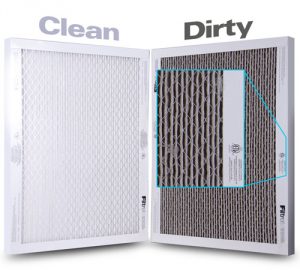The air conditioning system in you home can increase the electricity bill by as much as 60 percent, but you can make some adjustments around the house to lessen its impact. All you have to do is follow the 7 steps below and your home will stay cooler without the need to spend a lot of money.
-
Buy a Programmable Thermostat
A programmable thermostat will help you save a lot of money and can pay for itself in just one cooling season in most instances.
The reason why this is the case is that it never forgets to adjust the temperature when you can get away with it or shut the system off when you are not home. Out there are some amazing new systems that allow you to control the temperature in your home using your smartphone, which means that it can remain turned off most of the day and you can turn it back on just 30 minutes prior to your arrival.
A thermostat stops the compressor once the temperature in your home reaches a comfortable level and this keeps the unit from working harder thus using more energy. If you want to attain maximum savings, you should set the programmable thermostat to a higher temperature when you aren’t home and lower it to 78° Fahrenheit when you are indoors. If this sounds too hot, you should remember that the AC also removes much of the humidity from air, which means that it will feel much cooler.
-
Regularly Clean Your AC Filters
The second most important thing you can do to lower your electricity bills is to clean the AC filters regularly.
Natural hair and dust accumulation can clog the filter even if you keep your home clean and this means that the AC unit will use more power to reach the set temperature. This can lead to considerably higher electricity bills, so clean or replace the filters every few weeks.
-
Close All Vents in The Lower Areas of the Home
The reality is that heat rises while cool air falls. If you have a multi-story house, you may have noticed that the second story is one of the hardest places in your home to keep cool. Conversely, the basement always seems cooler.
Closing all vents in the lower areas of your home helps redirect the cold air to warmer areas and ensures more even temperature without consuming additional energy.
-
Using Ceiling Fans to Improve Air Circulation
Ceiling fans help to offset the natural tendency for the cooler air to fall.
If you are looking to save energy by keeping the home set to a temperature that’s slightly warmer, ceiling fans can be an excellent way to keep air circulating while using less energy. They can even make you feel up to 8 degrees cooler since they keep the air in your home moving like a fresh breeze.
-
Schedule Annual HVAC Check Ups
The unit is inspected and serviced by HVAC technicians to make sure that it operates efficiently. The technicians check for defects, remove any accumulated dirt, replace the air filters if necessary, service the unit, and address any issues that would otherwise snowball into expensive replacements and repairs. Schedule an annual check-up and the energy efficiency of your unit will be increased and the service life of the air conditioning system will be lengthened.
-
Seal Cracks and Crevices
You don’t have to be incredibly dexterous to use a caulking gun to seal up the crevices and cracks around windows and doors. Doing this helps prevent the cold air from escaping and ensures that hot air does not leak inside. DIY weather stripping for your doors also ensures that you don’t waste money cooling the outdoors.
-
Change Provider
You will pay more if your energy provider charges you more for it, so one of the best ways to save on HVAC costs is to change energy provider.
-
Close the Drapes on the West and South Sides
Everyone is aware of the fact that a vehicle can get very hot when you park it in the sun, but most people are not aware that the same thing happens to a house. The reason for this is the sunlight that enters through windows and is converted to heat once inside. Keeping the drapes and blind on any west- and south-facing windows means that you never have to pay extra to get rid of the heat.
Contributed by: Heating Furnace Fix.com Experts in HVAC , Heating and Cooling

